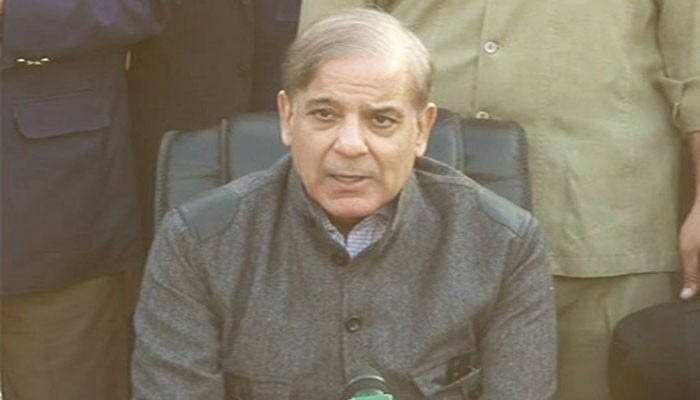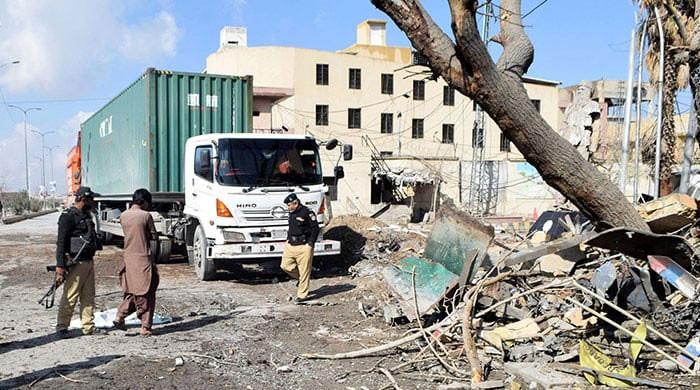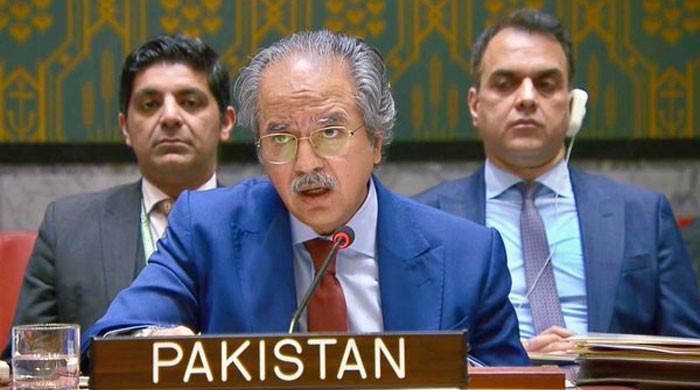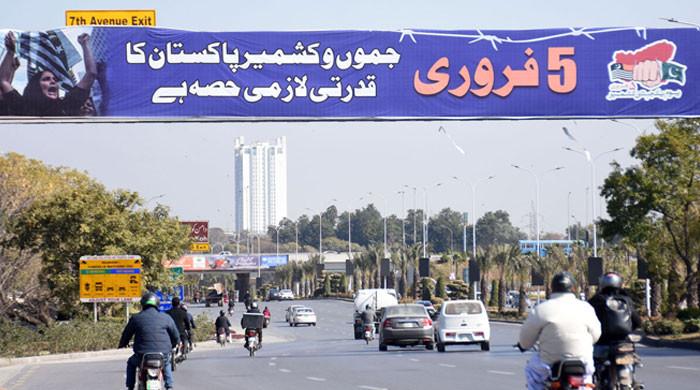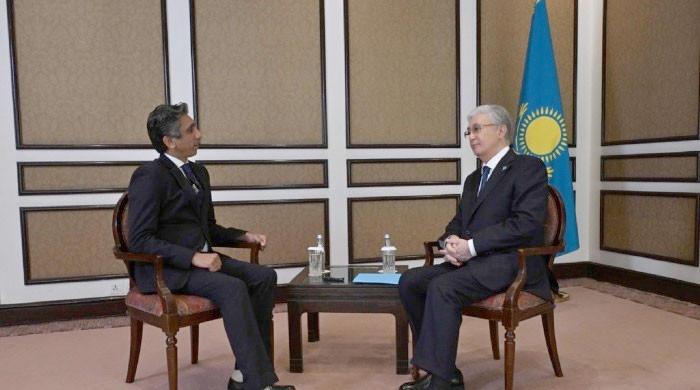CM Punjab visits Orange Line project site after SC verdict
The apex court on Friday had dismissed the decision of the Lahore High Court (LHC) halting work on selected sites of the project
December 09, 2017
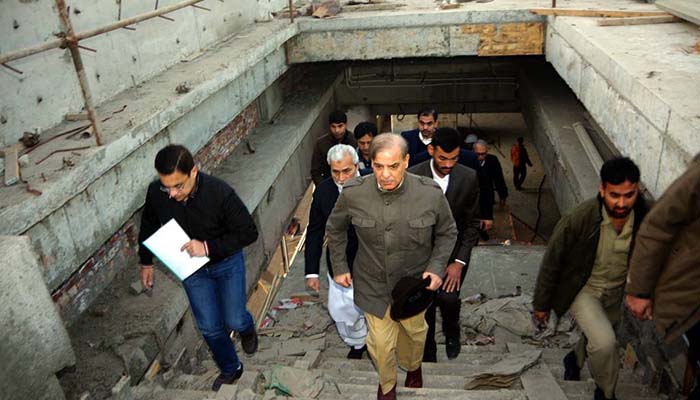
LAHORE: Chief Minister Punjab Shehbaz Sharif on Saturday visited the Orange Line Metro Train project site to have an overview of the work, a day after the Supreme Court allowed the provincial government to continue construction work on the project.
The apex court on Friday had dismissed the decision of the Lahore High Court (LHC) halting work on selected sites of the project.
Shehbaz said that the project will provide people with improved transportation services and the delay will be compensated for by hard work and commitment.
On Friday while talking to media the chief minister blamed the Pakistan Tehreek-e-Insaaf for the 22-month delay caused in the construction of the project.
"The PTI had submitted an application to the Supreme Court. Then, as hidden enemies strike, they did the same in the Lahore High Court. The revenge they have taken is not from me. They have taken revenge from the poor people of the city."
The chief minister added that the project was to be inaugurated on Dec 25 according to the original plan. When asked when the project would be operational, Shehbaz said he would inform of the date at a later date.
"But PTI and Imran Khan Niazi's team delayed the project for 22-months."
He elaborated that the Lahore High Court (LHC) had a stay order on the project for 14 months and the apex court announced its verdict eight months later.
Shehbaz added that the PTI did not want the people to benefit from an efficient and cheap mass transit system.
"The project was to run from Dec 25, now, due to the delay we are absolutely out of line."
Criticising the opposition party further, Shehbaz said they have been unable to even lay a brick for the metro project in Peshawar after a passage of four and a half years.
Punjab's chief minister further said if the project had been built on time and not subject to delays, it would have lessened thousands of cars on the road and could have led to less severe smog in the provincial capital.
"The tickets for the metro project would be reasonable and the price would be set keeping the common man in mind."
The apex court accepted the appeal of the Punjab government and others against the LHC decision with conditions and ruled by a 4-1 judgment that it observed no illegalities in the multi-billion rupee project.
A five-member bench of the Supreme Court, headed by Justice Ejaz Afzal Khan, had reserved its verdict in the case on April 17 this year.
Although the apex court has allowed the Punjab government to go ahead with the project at the same speed, the bench has set 31 conditions to ensure the project's transparency.
The conditions include strict monitoring of the construction as well as a dedicated trial period before train operations begin; placement of high-tech devices and hiring of expert monitors to ensure vibrations from the construction don't damage the heritage sites and various measures for the beautification and restoration of the sites.
The apex court has also ordered the formation of a five-member experts' committee and three-member technical committee to oversee the project and ensure the protection of the heritage site under question.
A Rs100 million fund will also be established by the government to maintain the heritage sites, according to the court order.
The $1.6 billion project
Launched in May 2014 by Punjab Chief Minister Shehbaz Sharif, in collaboration with a Chinese company, the project is set to be the country’s first metro line, but it got embroiled in a legal battle in LHC which ordered a stay on several sites as the development was trampling over heritage sites in Lahore.
A single train within the 27-kilometre rail line has the capacity to carry 1,000 people, out of which 200 can be seated while 800 can commute while standing.
The project, which was included in the China-Pakistan Economic Corridor earlier in the year, is expected to run on electricity and transport up to 250,000 passengers a day.
The capacity is set to be increased to 500,000 passengers by 2025.
The original deadline for the project was December 25, 2017.
